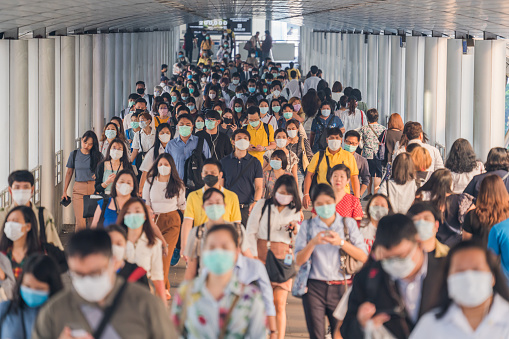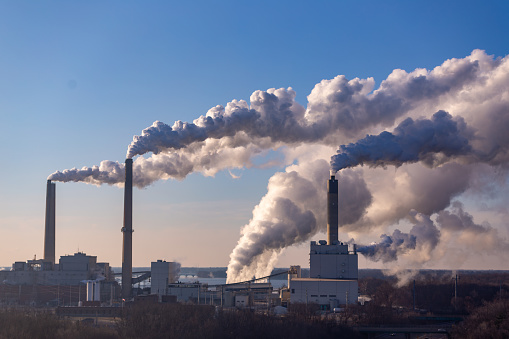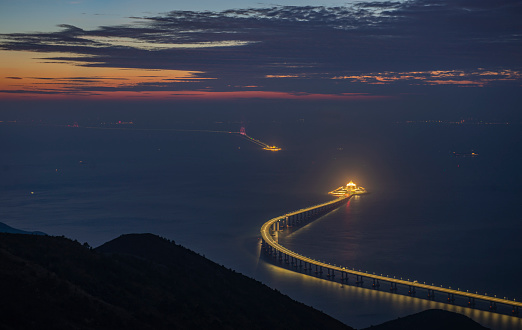
 COVID Cluster
COVID ClusterOver 10 million residents of the port city Qingdao were tested this week after a cluster of 13 cases broke out, according to government officials. However, every test came back negative. The cluster, which originated in a Qingdao hospital, prompted officials to put the city into a soft lockdown, canceling flights to Beijing and forcing tourists and residents to quarantine.
In comparison to other countries, China has been fairly successful in controlling the spread of coronavirus. This week, China joined the COVAX initiative, becoming the 183rd country in the world to join the World Health Organization-backed program that will offer subsidized access to a coronavirus vaccine as soon as it's ready. The initiative includes roughly 93% of the world's population, and now excludes only five countries: Belarus, Kazakhstan, Malaysia, Russia, and the U.S.
 Trading Tit for Tat
Trading Tit for TatChinese power stations, steel mills and ports have suspended imports of Australian coal, further souring an already fractured relationship. Chinese officials allegedly have verbally been told to stop using and stop accepting shipments of the Australian fossil fuel, according to anonymous sources. In 2019, Australia complained that coal shipments were being held up for as long as 40 days.
Australia is China's biggest supplier of commodities and the move comes as tensions between the two countries are on the rise. The relationship has been tense since 2017, after Prime Minister Malcolm Turnbull accused China of interfering in Australian politics. Earlier this year, Prime Minister Scott Morrison also drew ire from Beijing after pushing for an open investigation into the origins of the coronavirus. China and Beijing are now engaged in a minor tit-for-tat trade confrontation. Along with coal, Australia's $750 million USD cotton industry has also come under fire. According to some of Australia's top cotton producers, China has given orders to discontinue purchases from Australian cotton mills. This leaves Australian cotton in a similarly precarious position as Australian beef, barely, and wine.
 A Core Engine of Tech
A Core Engine of TechPlans to further turn Shenzhen into the "core engine" of the Greater Bay Area initiative were unveiled this week at a celebration, marking the southern Chinese city's 40th anniversary of becoming a Special Economic Zone. Speaking at the event, Xi Jinping outlined his goal of integrating the tech hub with Macau and Hong Kong, transforming the region from a once-sleepy fishing village into a grandiose megacity.
Hundreds of tech executives and government officials were in attendance, including Ren Zhengfei, Co-Founder of Huawei Technologies. The event signals a greater push from top levels of the Chinese government to turn China into a cutting edge competitor in technology and finance and come at a time when a number of countries around the globe are increasingly looking to cut ties with China's technology sector. If successful, the region would rival other tech hubs such as Silicon Valley and Tokyo Bay.
Prepared by China-US Focus editorial teams in Hong Kong and New York, this weekly newsletter offers you snap shots of latest trends and developments emerging from China every week, while adding a dose of historical perspective.
- 2020-10-10 Election Looming
- 2020-10-03 Golden Week Kicks Off
- 2020-09-26 Virtual Diplomacy
- 2020-09-18 Digital Domain
- 2020-09-12 Reframing the Ground Rules
- 2020-09-05 Reciprocity in Action
- 2020-08-29 Who’s Tougher on China?
- 2020-08-22 To Talk, Or Not To Talk
- 2020-08-15 Domestic Circulation
- 2020-08-07 Fraying Relations
- 2020-08-01 Turning Tides
- 2020-07-24 Up in Smoke
- 2020-07-17 Status Stripped
- 2020-07-10 A Historic Moment
- 2020-07-03 Handover Tested
- 2020-06-27 Relationship Spiral
- 2020-06-20 Bolton Bombshell
- 2020-06-13 Fits and Starts
- 2020-06-06 Confluence of Crises
- 2020-05-29 Questions of Autonomy
